
The Healing Power of Rest: How Spa Therapies Improve Sleep Quality

In today’s fast-paced world, where stress and screen time dominate our days, a good night’s sleep has become a luxury many people struggle to enjoy. Sleep is the foundation of physical, emotional, and mental well-being — yet millions suffer from insomnia, restless nights, or poor sleep quality. The solution doesn’t always lie in medication or strict routines; sometimes, it’s found in the calm, restorative embrace of a spa.
Across the globe, spas have evolved into sanctuaries for deep relaxation and natural healing. In particular, spa therapies designed for better sleep combine traditional techniques and modern wellness science to calm the body, quiet the mind, and prepare the nervous system for rest. Whether it’s through a soothing massage, a warm herbal bath, or mindful breathing in a relaxation lounge, these relaxation treatments can significantly enhance your sleep quality and overall well-being.
This comprehensive guide explores how spa environments and specialized treatments can help you sleep more deeply, recover faster, and wake up refreshed — ready to face each new day with renewed energy.
Understanding the Link Between Relaxation and Sleep
Sleep isn’t just the absence of wakefulness — it’s a state of balance, restoration, and repair. When you’re under chronic stress or overstimulated, your body remains in a heightened “fight or flight” mode. Cortisol levels rise, muscles tense, and the mind struggles to slow down.
This is where spa therapies come in. The gentle touch of massage, the warmth of water, and the soothing scents of essential oils send powerful signals to your nervous system that it’s safe to relax. Blood pressure drops, breathing slows, and brain waves shift toward the same calm patterns seen before deep sleep.
A spa for better sleep isn’t just about pampering — it’s about retraining your body and mind to unwind naturally.
1. Sleep-Improving Massages: The Science of Touch
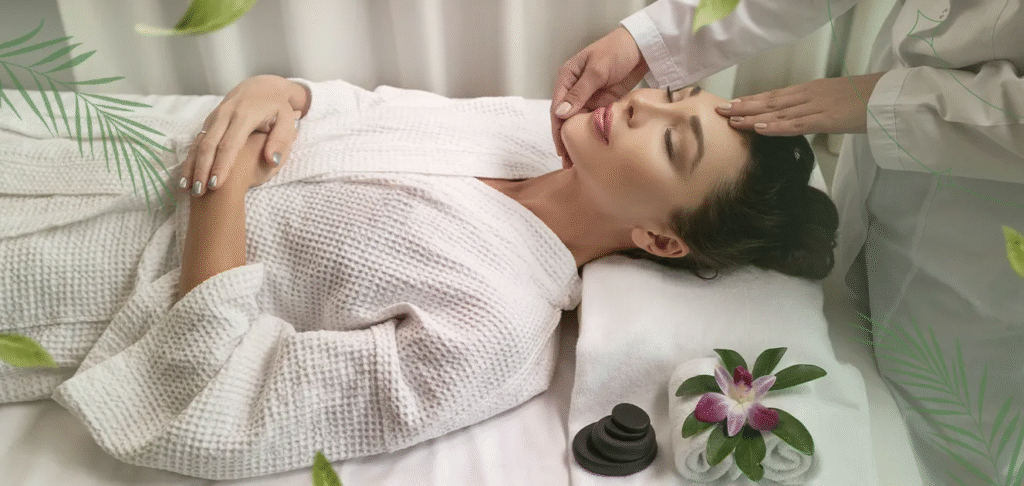
Among all relaxation treatments, sleep-improving massage is one of the most effective ways to prepare for a restful night. Massage therapy promotes deep relaxation, reduces muscle tension, and improves circulation — all of which are essential for better sleep.
How Massage Promotes Better Sleep
Massage has a profound impact on the body’s nervous system. It lowers cortisol (the stress hormone) while increasing serotonin and dopamine — neurotransmitters that support relaxation and happiness. Serotonin also acts as a precursor to melatonin, the hormone that regulates your sleep-wake cycle.
Popular Sleep-Focused Massage Techniques
- Swedish Massage: Characterized by slow, flowing strokes, this technique calms the nervous system and enhances blood flow, creating a deeply soothing sensation.
- Aromatherapy Massage: Essential oils like lavender, chamomile, and sandalwood are blended into massage oils to induce tranquility and promote drowsiness.
- Hot Stone Massage: The warmth from smooth stones relaxes deep muscles and improves circulation, helping the body transition smoothly into rest.
- Reflexology: Applying gentle pressure to specific points on the feet or hands can reduce tension and encourage the whole body to release stress.
A sleep-improving massage is best taken in the evening or late afternoon so that the relaxation continues naturally into bedtime.
2. The Restorative Effect of Warm Baths
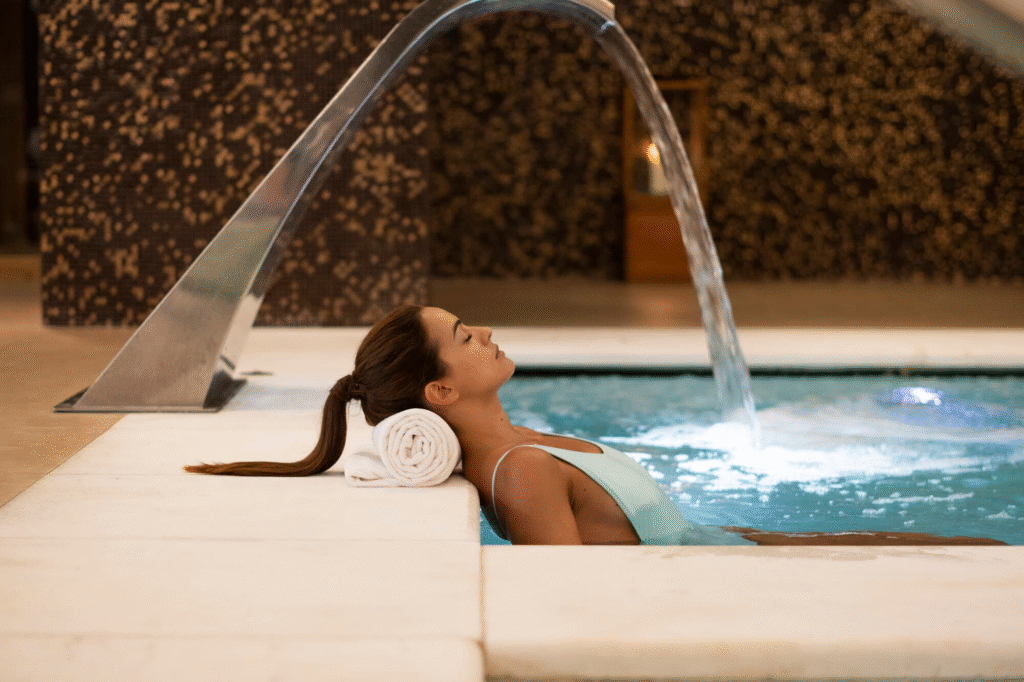
One of the oldest and simplest sleep therapies is the warm bath. For centuries, cultures have used thermal water rituals to promote relaxation and prepare for sleep.
When you immerse your body in warm water, your core temperature rises slightly. As you step out, the gradual cooling triggers a natural drop in body temperature — the same process that happens when you fall asleep. This physiological cue signals your body that it’s time to rest.
Spa Bath Rituals for Better Sleep
Modern spas take this ancient wisdom and elevate it through hydrotherapy techniques:
- Thermal Pools: Gently heated pools soothe joints, relieve fatigue, and relax muscles.
- Jacuzzi or Whirlpool Baths: The massaging effect of bubbles and jets eases tension and enhances comfort.
- Mineral Baths: Water rich in magnesium or sulfur supports muscle recovery and balances the nervous system.
- Aromatherapy Baths: Adding calming essential oils like lavender, ylang-ylang, or jasmine transforms a simple soak into a powerful relaxation ritual.
Warm baths also improve blood circulation, which helps the body release toxins and oxygenate tissues — creating a deep sense of calm before bedtime.
3. Herbal Compresses and Natural Remedies
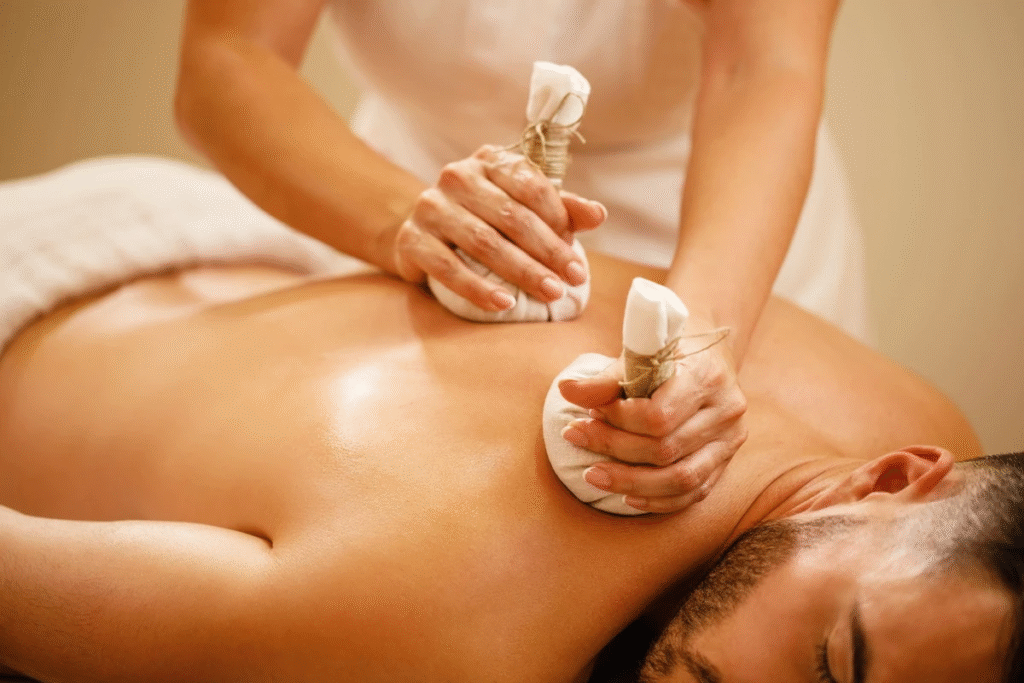
Many spa therapies for better sleep draw inspiration from traditional medicine, where herbs play a central role in restoring balance. Herbal compress treatments are a perfect example — blending heat, touch, and nature’s healing power.
What Is an Herbal Compress?
An herbal compress is a bundle of healing herbs (often including lemongrass, chamomile, lavender, and ginger) wrapped in soft cotton. The compress is steamed and then gently pressed along the body during a massage. The warmth releases essential oils from the herbs, allowing them to penetrate the skin and stimulate relaxation.
Benefits for Sleep
- Deep Relaxation: The heat and aroma calm the mind and muscles.
- Stress Relief: The herbs help reduce anxiety and mental fatigue.
- Improved Circulation: Better blood flow encourages deeper rest and recovery.
- Natural Pain Relief: Warm compresses ease tension headaches and neck stiffness — common causes of poor sleep.
This treatment combines the best of aromatherapy and massage, offering both physical and emotional benefits that continue long after the session ends.
4. Breathing Techniques and Mindfulness Practices
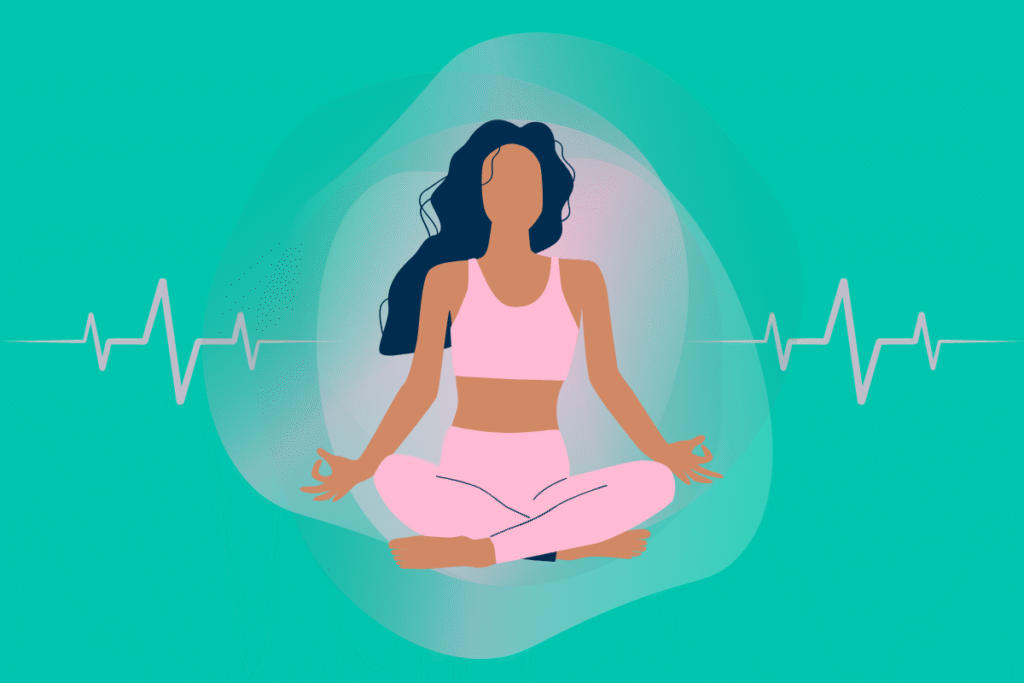
Breathing is often overlooked as a tool for better sleep, yet it’s one of the most powerful ways to calm the nervous system. Many spas include guided breathing sessions or mindfulness practices as part of their relaxation treatments.
When you breathe slowly and deeply, your body activates the parasympathetic nervous system — the “rest and digest” response. This reduces heart rate, relaxes muscles, and clears the mind. Combined with gentle spa surroundings, it sets the perfect foundation for a good night’s sleep.
Common Breathing Techniques Used in Spas
- 4-7-8 Technique: Inhale for 4 seconds, hold for 7, exhale for 8. This pattern slows the heartbeat and induces relaxation.
- Alternate Nostril Breathing: Balances energy flow and calms the mind.
- Guided Meditation: Many relaxation zones in spas play soft voice recordings that lead guests through breathing exercises and visualization.
Adding mindfulness to a spa for better sleep experience strengthens the connection between mind and body, helping you leave behind racing thoughts and daily worries.
5. Relaxation Zones: The Art of Stillness

A spa is more than its treatments — it’s an environment carefully designed to promote peace. Relaxation zones, often located between therapy rooms or near gardens and pools, allow guests to transition gently from activity to stillness.
These spaces usually feature low lighting, calming music, comfortable seating, and natural elements like wood and stone. They encourage you to pause, breathe, and be present — a rare luxury in modern life.
Elements of an Effective Relaxation Zone
- Soft Lighting: Warm, dim lighting helps lower melatonin-suppressing blue light and creates a tranquil atmosphere.
- Aromatherapy Air: Subtle scents of lavender or sandalwood reduce anxiety.
- Gentle Soundscapes: The sound of running water, wind chimes, or ambient music synchronizes brain waves with restful states.
- Comfortable Loungers: Ergonomic furniture supports the body and allows complete relaxation.
In many luxury spas, guests are encouraged to spend time in these areas after treatments. This ensures that the body fully absorbs the effects of the massage, and the mind transitions smoothly into a restful state — the perfect preparation for sleep.
6. The Role of Aromatherapy in Sleep Enhancement

Aromatherapy plays a central role in many relaxation treatments designed for better sleep. The olfactory system — the part of the brain that processes smell — is directly linked to the limbic system, which regulates emotions and memory.
Essential Oils That Improve Sleep
- Lavender: The most famous sleep aid; it reduces anxiety and promotes calm brain activity.
- Chamomile: Gently sedative and emotionally grounding.
- Sandalwood: Deeply relaxing with a warm, woody aroma that supports meditation and stillness.
- Ylang-Ylang: Balances mood swings and helps release tension.
- Bergamot: Reduces cortisol levels and lifts the spirit.
These oils can be diffused into the air, blended into massage oils, or added to warm baths. Their natural properties support both mental relaxation and physical comfort, making them essential components of a spa for better sleep.
7. Spa Sleep Programs and Holistic Wellness Packages
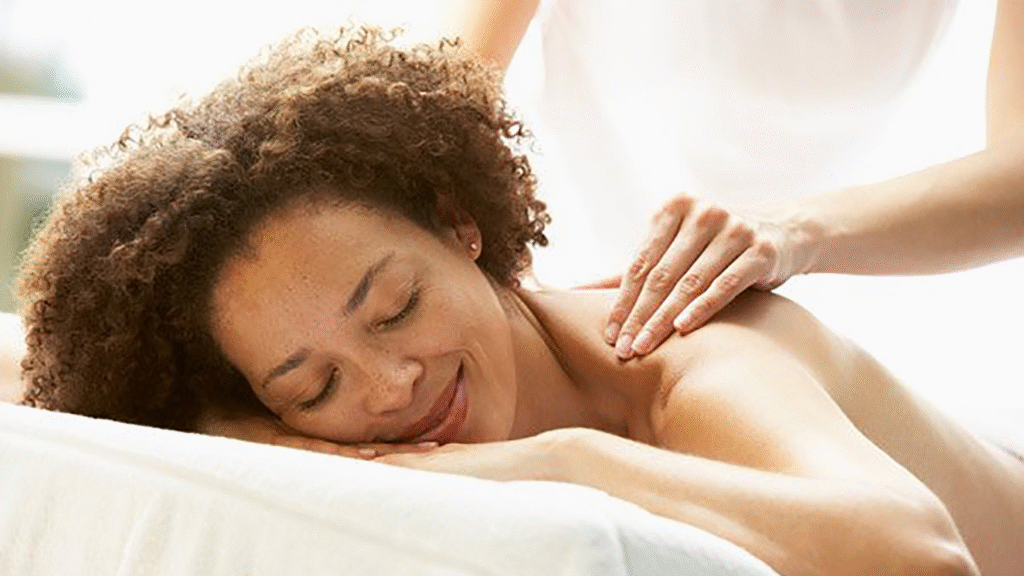
Many wellness resorts now offer specialized sleep improvement programs — multi-day packages that combine several of the above techniques.
A typical program may include:
- Evening massages tailored to calm the nervous system.
- Herbal baths before bedtime.
- Breathing and meditation sessions in the morning.
- Balanced nutrition plans supporting hormonal harmony.
- Personalized aromatherapy and music therapy sessions.
These programs take a holistic approach, addressing every aspect of the sleep cycle — from stress reduction to physical comfort and emotional peace.
8. Creating a Spa-Like Sleep Routine at Home
The beauty of spa-inspired relaxation is that you can bring much of it home. By incorporating a few habits and rituals into your evening routine, you can turn your bedroom into a personal wellness retreat.
Simple Home Rituals for Better Sleep
- Warm Bath Before Bed: Add Epsom salts or essential oils.
- Self-Massage: Use gentle circular motions on your shoulders, neck, and feet with calming oils.
- Aromatherapy Diffuser: Run a lavender or chamomile blend 30 minutes before sleep.
- Guided Breathing or Meditation: Practice slow breathing to relax your body and mind.
- Digital Detox: Dim the lights and avoid screens an hour before bed.
- Comfortable Environment: Keep your bedroom cool, dark, and quiet — much like a spa’s relaxation zone.
These small rituals mimic the experience of a sleep-improving massage or relaxation treatment and can gradually train your body to associate bedtime with calmness.
9. The Science of Relaxation: Why Spa Treatments Work

Modern science confirms what ancient healing traditions have long known: relaxation therapies significantly influence sleep quality. Regular exposure to calm environments and touch-based treatments lowers heart rate, improves hormonal balance, and enhances parasympathetic nervous activity.
When you relax deeply, your body enters a restorative state where tissues heal, energy is replenished, and the mind rebalances. That’s why consistent relaxation treatments not only improve sleep but also boost immunity, focus, and emotional stability.
A spa visit, therefore, is not a luxury — it’s an investment in long-term wellness.
10. Choosing the Right Spa for Better Sleep
When selecting a spa focused on rest and relaxation, look for one that emphasizes holistic care rather than just beauty treatments.
Consider these features:
- Quiet zones and meditation areas.
- Skilled therapists trained in sleep-enhancing techniques.
- Use of natural, high-quality essential oils and herbs.
- Gentle lighting and soothing soundscapes.
- Late-evening appointments for a seamless transition to bedtime.
The best spa for better sleep will make you feel safe, nurtured, and unhurried — a haven where you can truly let go.
Conclusion: Rest, Recover, Reconnect

In a world that never stops moving, true rest has become both rare and precious. Yet, through the power of touch, warmth, scent, and stillness, spa therapies for better sleep offer a simple and natural way to restore balance.
From calming massages and warm baths to herbal compresses and mindful breathing, each treatment brings you closer to the deep, restorative sleep your body and mind crave. Whether you visit a luxury spa or create your own evening ritual at home, the goal remains the same — to reconnect with yourself, release tension, and rediscover the joy of peaceful rest.
A sleep-improving massage or a quiet soak in warm water may seem small, but their impact is profound. Night after night, these gentle rituals can transform your well-being, allowing you to wake each morning not just rested, but renewed.



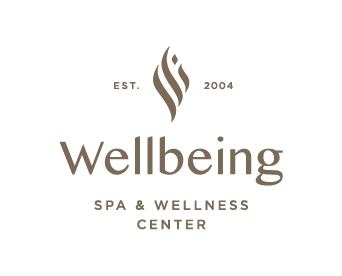
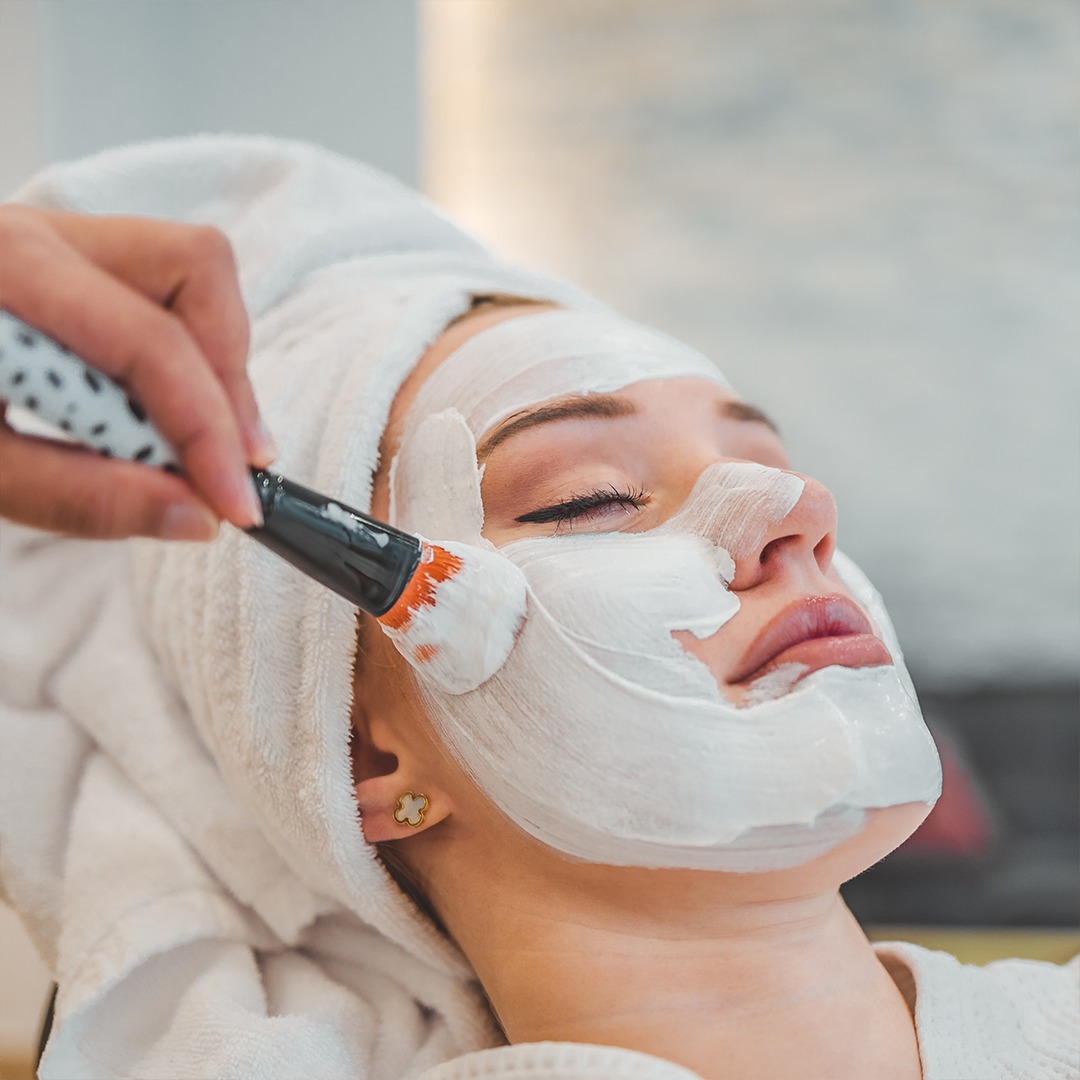
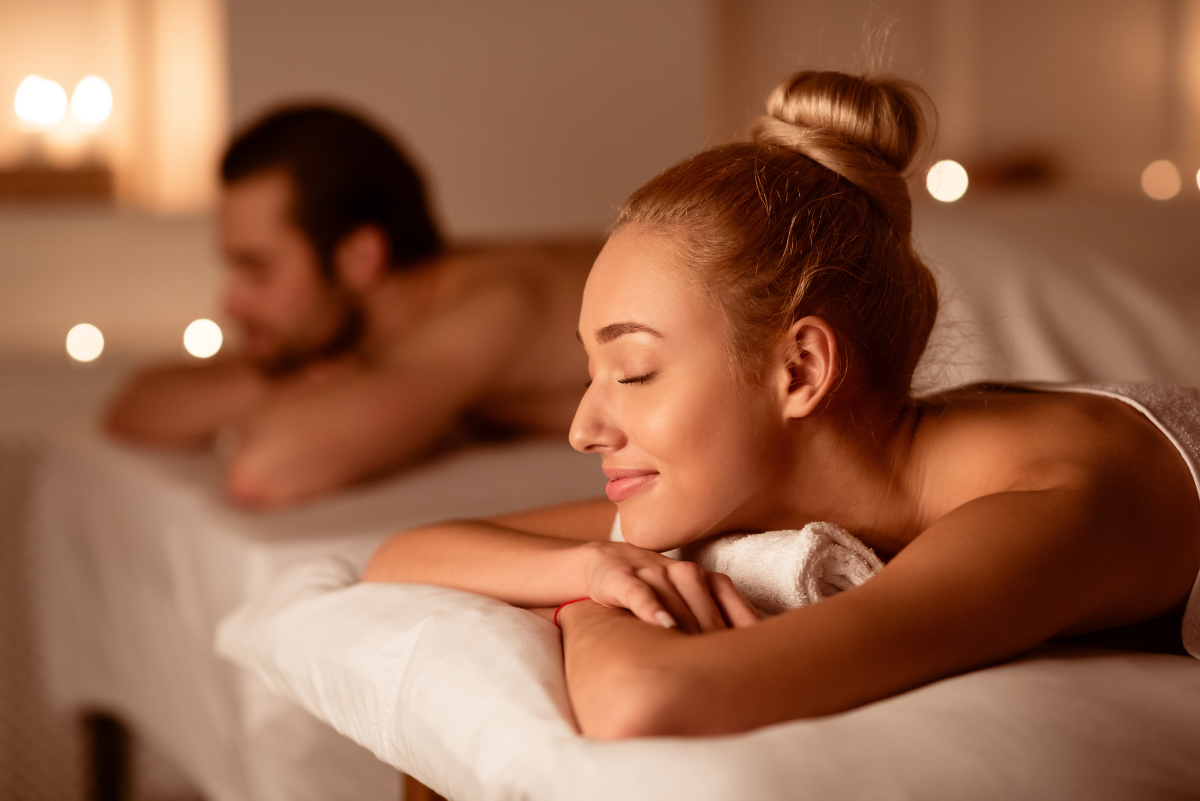
Leave a Reply